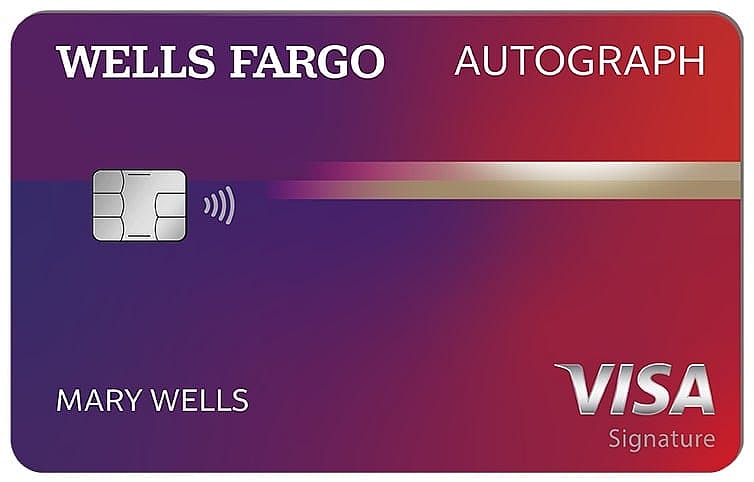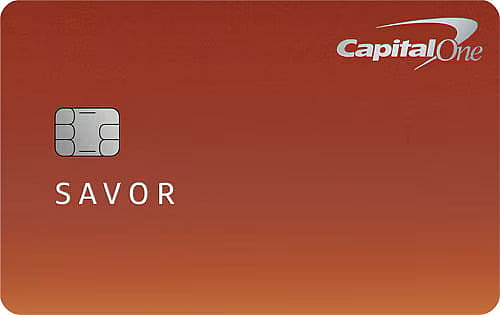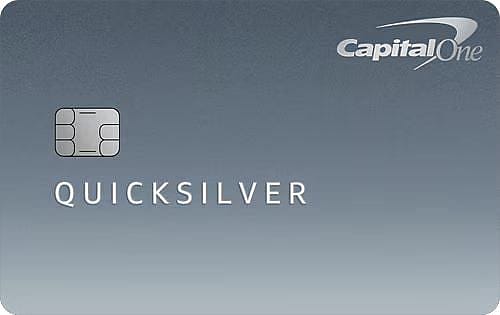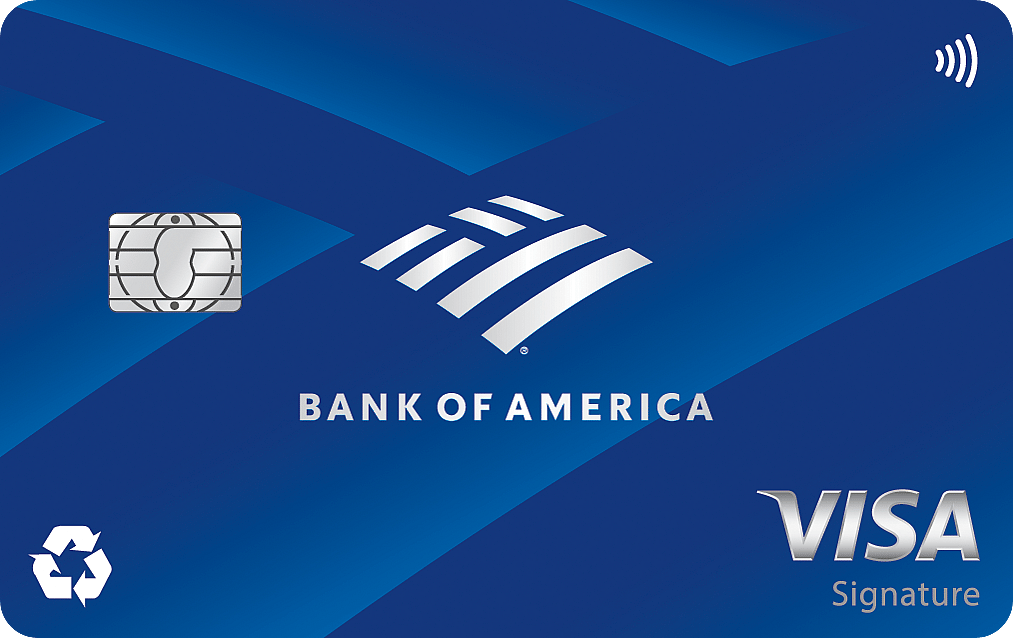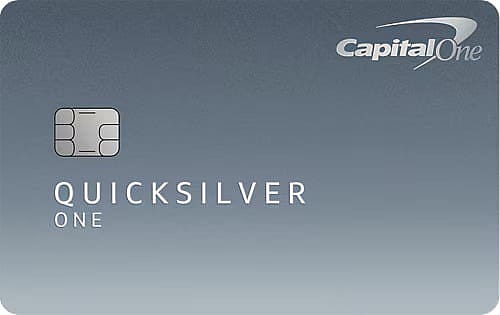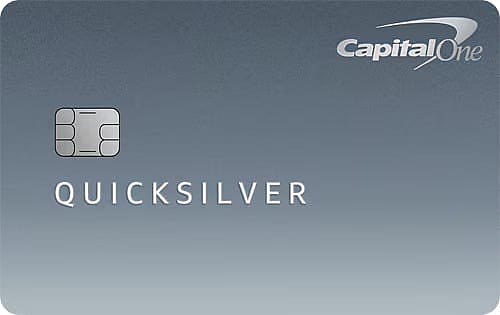Best No Foreign Transaction Fee Credit Cards of March 2026
Many or all of the products on this page are from partners who compensate us when you click to or take an action on their website, but this does not influence our evaluations or ratings. Our opinions are our own.
Many or all of the products on this page are from partners who compensate us when you click to or take an action on their website, but this does not influence our evaluations or ratings. Our opinions are our own.
Most credit cards tack an extra charge on purchases made outside the U.S. If you're planning to travel abroad, you'll want a card without foreign transaction fees, like one of the options below. Foreign transaction fees are usually 1% to 3% of the purchase amount, with 3% being common. That might not seem like a big deal, but if you spent, say, $3,000 at a hotel, you could be looking at an additional $90 charge.
| Credit card | Rating | Annual fee | Rewards rate | Intro offer | Learn more |
|---|---|---|---|---|---|
2026 Best all-purpose travel rewards credit card Apply Nowon Chase's website on Chase's website | Best for Bonus travel rewards | $95 | 1x-5x | 75,000 points | Apply Nowon Chase's website on Chase's website |
2026 Best travel card with no annual fee Apply Nowon Wells Fargo's website on Wells Fargo's website | Best for Bonus rewards + no annual fee | $0 | 1x-3x | 20,000 points | Apply Nowon Wells Fargo's website on Wells Fargo's website |
2026 Best credit card for dining Apply Nowon Capital One's website on Capital One's website | Best for Bonus category cash back | $0 | 1%-8% | $200 | Apply Nowon Capital One's website on Capital One's website |
Apply Nowon Capital One's website on Capital One's website | Best for Simple travel rewards | $95 | 2x-5x | $250 Travel Credit + Earn 75K Bonus Miles | Apply Nowon Capital One's website on Capital One's website |
Apply Nowon Capital One's website on Capital One's website | Best for Flat-rate cash back | $0 | 1.5%-5% | $200 | Apply Nowon Capital One's website on Capital One's website |
Apply Nowon Bank of America's website on Bank of America's website | Best for Simple rewards + no annual fee | $0 | 1.5x-3x | 25,000 points | Apply Nowon Bank of America's website on Bank of America's website |
Apply Nowon Capital One's website on Capital One's website | Best for Average credit | $39 | 1.5%-5% | N/A | Apply Nowon Capital One's website on Capital One's website |
Apply Nowon Capital One's website on Capital One's website | Best for College students | $0 | 1.5%-5% | $50 | Apply Nowon Capital One's website on Capital One's website |
Apply Nowon Chase's website on Chase's website | Best for Business travel | $95 | 1x-5x | 100,000 points | Apply Nowon Chase's website on Chase's website |
2026 Best all-purpose travel rewards credit card
Apply Nowon Chase's websiteon Chase's websiteAnnual fee$95Rewards rate1x-5xPointsIntro offer75,000pointsRegular APR19.24%-27.49% Variable APRRecommended credit scoreRewards breakdown
5xPoints on travel purchased through Chase Travel℠.3xPoints on dining.3xPoints on select streaming services.3xPoints on online groceries.2xPoints on all other travel purchases.1xPoint on all other purchases.Card details
- Earn 75,000 bonus points after you spend $5,000 on purchases in the first 3 months from account opening.
- Enjoy benefits such as 5x on travel purchased through Chase Travel℠, 3x on dining, select streaming services and online groceries, 2x on all other travel purchases, 1x on all other purchases
- Earn up to $50 in statement credits each account anniversary year for hotel stays through Chase Travel℠
- 10% anniversary points boost - each account anniversary you'll earn bonus points equal to 10% of your total purchases made the previous year.
- Count on Trip Cancellation/Interruption Insurance, Auto Rental Collision Damage Waiver, Lost Luggage Insurance and more.
- Complimentary DashPass which unlocks $0 delivery fees & lower service fees for a min. of one year when you activate by 12/31/27. Plus, a $10 promo each month on non-restaurant orders.
- Member FDIC
- View Rates & Fees
NerdWallet's take
The Chase Sapphire Preferred® Card is a best-in-class mid-tier travel card for those looking for a valuable welcome offer and opportunities to transfer points to leading loyalty programs — and no foreign transaction fee.
Read full reviewProsEarn 75,000 bonus points after you spend $5,000 on purchases in the first 3 months from account opening.
Points are worth more when used to book travel through Chase.
Points are transferable to Chase’s travel partners.
Up to a $50 annual credit on hotel stays purchased through Chase.
Primary rental car coverage.
Cons$95 annual fee.
No Global Entry, TSA PreCheck or NEXUS credit.
No lounge access.
No intro APR period.
2026 Best travel card with no annual fee
Apply Nowon Wells Fargo's websiteon Wells Fargo's websiteAnnual fee$0Rewards rate1x-3xPointsIntro offer20,000pointsRecommended credit scorePurchase intro APR0% intro APR for 12 months from account opening on purchasesRegular APR18.49%, 24.49%, or 28.49% Variable APRRewards breakdown
3xUnlimited Points on restaurants, travel, gas stations, transit, popular streaming services and phone plans.1xUnlimited Points on other purchases.Card details
- Apply Now to take advantage of this offer and learn more about product features, terms and conditions.
- Earn 20,000 bonus points when you spend $1,000 in purchases in the first 3 months - that's a $200 cash redemption value.
- Earn unlimited 3X points on the things that really add up - like restaurants, travel, gas stations, transit, popular streaming services, and phone plans. Plus, earn 1X points on other purchases.
- $0 annual fee.
- 0% intro APR for 12 months from account opening on purchases. 18.49%, 24.49%, or 28.49% variable APR thereafter.
- Up to $600 of cell phone protection against damage or theft. Subject to a $25 deductible.
- Redeem your rewards points for travel, gift cards, or statement credits. Or shop at millions of online stores and redeem your rewards when you check out with PayPal.
- Find tickets to top sports and entertainment events, book travel, make dinner reservations and more with your complimentary 24/7 Visa Signature® Concierge.
- View Rates & Fees
NerdWallet's take
The Wells Fargo Autograph® Card offers so much value for travelers, it's hard to believe there's a $0 annual fee (not to mention no foreign transaction fee). Start with a great bonus offer, then earn extra rewards in a host of common spending categories.
Read full reviewProsUnlimited 3x points per $1 on travel, dining, gas stations, transit, popular streaming services and phone plans.
Several redemption options, including transferring to Wells Fargo’s travel partners.
Decent intro APR period for purchases.
Earn 20,000 bonus points when you spend $1,000 in purchases in the first 3 months - that's a $200 cash redemption value.
$0 annual fee.
Cell phone insurance.
ConsLacks perks of a co-branded airline or hotel card.
Limited transfer partners.
2026 Best credit card for dining
Apply Nowon Capital One's websiteon Capital One's websiteAnnual fee$0Rewards rate1%-8%CashbackIntro offer$200Recommended credit scorePurchase intro APR0% intro on purchases for 12 monthsBalance transfer intro APR0% intro on balance transfers for 12 months; balance transfer fee appliesRegular APR18.49%-28.49% Variable APRRewards breakdown
8%Cash back on Capital One Entertainment purchases.5%Cash back on hotels, vacation rentals and rental cars booked through Capital One Travel.3%Cash back on dining.3%Cash back on entertainment.3%Cash back on popular streaming services.3%Cash back at grocery stores (excluding superstores like Walmart® and Target®).1%Cash back on all other purchases.Card details
- Earn a one-time $200 cash bonus once you spend $500 on purchases within the first 3 months from account opening
- $0 annual fee and no foreign transaction fees
- Earn unlimited 3% cash back at grocery stores (excluding superstores like Walmart® and Target®), on dining, entertainment and popular streaming services, plus 1% on all other purchases
- Earn 8% cash back on Capital One Entertainment purchases
- Earn unlimited 5% cash back on hotels, vacation rentals and rental cars booked through Capital One Travel
- No rotating categories or sign-ups needed to earn cash rewards; plus cash back won't expire for the life of the account and there's no limit to how much you can earn
- 0% intro APR on purchases and balance transfers for 12 months; 18.49% - 28.49% variable APR after that; balance transfer fee applies
- Top rated mobile app
- View Rates & Fees
NerdWallet's take
The $0-annual-fee Capital One Savor Cash Rewards Credit Card is a top-notch rewards card that happens to travel well abroad, too, thanks to its lack of foreign transaction fees.
Read full reviewPros3% cash back on dining, on entertainment, at grocery stores and on eligible streaming services; 8% cash back on entertainment purchases when you book through the Capital One Entertainment portal; 5% cash back on hotels, vacation rentals and car rentals booked through Capital One Travel — plus 1% cash back on other purchases.
Rewards are transferrable to Capital One’s Venture cards.
No redemption minimum.
Earn a one-time $200 cash bonus once you spend $500 on purchases within the first 3 months from account opening.
Intro APR period for purchases and balance transfers.
$0 annual fee.
Cons- Bigger bonus offerWhy this card stands out
For a limited time, the Capital One Venture Rewards Credit Card is offering new cardholders an especially rich two-part bonus worth $1,000 in travel. First, there's a $250 credit to use on Capital One Travel in the first cardholder year. Plus, you can earn 75,000 bonus miles once you spend $4,000 on purchases in the first three months you have the card.
Our pick for: Simple travel rewards
Apply Nowon Capital One's websiteon Capital One's websiteAnnual fee$95Rewards rate2x-5xMilesIntro offer$250 Travel Credit + Earn 75K Bonus MilesRegular APR19.49%-28.49% Variable APRRecommended credit scoreRewards breakdown
5xEarn 5X miles on hotels, vacation rentals and rental cars booked through Capital One Travel.2xMiles on every purchase, every day.Card details
- LIMITED-TIME OFFER: Enjoy $250 to use on Capital One Travel in your first cardholder year, plus earn 75,000 bonus miles once you spend $4,000 on purchases within the first 3 months from account opening - that’s equal to $1,000 in travel
- Earn unlimited 2X miles on every purchase, every day
- Earn 5X miles on hotels, vacation rentals and rental cars booked through Capital One Travel
- Miles won't expire for the life of the account and there's no limit to how many you can earn
- Receive up to a $120 credit for Global Entry or TSA PreCheck®
- Use your miles to get reimbursed for any travel purchase—or redeem by booking a trip through Capital One Travel
- Enjoy a $50 experience credit and other premium benefits with every hotel and vacation rental booked from the Lifestyle Collection
- Transfer your miles to your choice of 15+ travel loyalty programs
- Top rated mobile app
- View Rates & Fees
NerdWallet's take
One of the top-tier travel credit cards on the market, the Capital One Venture Rewards Credit Card features rewards that are both easy to earn and easy to use — and, of course, there are no foreign transaction fees.
Read full reviewProsUnlimited 2 miles per $1 on purchases, plus 5 miles per $1 on hotels, vacation rentals and car rentals booked through Capital One Travel.
No redemption minimum.
Rewards are transferrable to Capital One’s multiple travel partners.
LIMITED-TIME OFFER: Enjoy $250 to use on Capital One Travel in your first cardholder year, plus earn 75,000 bonus miles once you spend $4,000 on purchases within the first 3 months from account opening - that’s equal to $1,000 in travel.
Global Entry or TSA PreCheck statement credit.
Cons$95 annual fee.
Lacks perks of a co-branded airline or hotel card.
No intro APR period.
Our pick for: Flat-rate cash back
Apply Nowon Capital One's websiteon Capital One's websiteAnnual fee$0Rewards rate1.5%-5%CashbackIntro offer$200Recommended credit scorePurchase intro APR0% intro on purchases for 15 monthsBalance transfer intro APR0% intro on balance transfers for 15 months; balance transfer fee appliesRegular APR18.49%-28.49% Variable APRRewards breakdown
5%Cash back on hotels, vacation rentals and rental cars booked through Capital One Travel.1.5%Cash back on every purchase, every day.Card details
- Earn a one-time $200 cash bonus after you spend $500 on purchases within 3 months from account opening
- Earn unlimited 1.5% cash back on every purchase, every day
- $0 annual fee and no foreign transaction fees
- Earn unlimited 5% cash back on hotels, vacation rentals and rental cars booked through Capital One Travel
- No rotating categories or sign-ups needed to earn cash rewards; plus, cash back won't expire for the life of the account and there's no limit to how much you can earn
- 0% intro APR on purchases and balance transfers for 15 months; 18.49% - 28.49% variable APR after that; balance transfer fee applies
- Top rated mobile app
- View Rates & Fees
NerdWallet's take
The Capital One Quicksilver Cash Rewards Credit Card can save you money with its 1.5% cash back rate and lack of foreign transaction fees.
Read full reviewPros1.5% cash back on purchases, plus 5% cash back on hotels, vacation rentals and rental cars booked through Capital One Travel.
Solid intro APR period on purchases and balance transfers.
No minimum redemption amount.
Earn a one-time $200 cash bonus after you spend $500 on purchases within 3 months from account opening.
$0 annual fee.
ConsOur pick for: Simple rewards + no annual fee
Apply Nowon Bank of America's websiteon Bank of America's websiteAnnual fee$0Rewards rate1.5x-3xPointsIntro offer25,000pointsRecommended credit scorePurchase intro APR0% intro APR on Purchases for 15 billing cyclesBalance transfer intro APR0% intro APR on Balance Transfers for 15 billing cycles for any balance transfers made in the first 60 daysRegular APR17.49%-27.49% Variable APRRewards breakdown
3xPoints per $1 spent on travel purchases booked through the Bank of America Travel Center.1.5xPoints per $1 spent on everyday purchases.Card details
- 25,000 online bonus points after you make at least $1,000 in purchases in the first 90 days of account opening - that can be a $250 statement credit toward travel purchases.
- Earn unlimited 1.5 points per $1 spent on everyday purchases, with no annual fee and no foreign transaction fees and your points don't expire as long as your account remains open.
- Earn 3 points per $1 spent on travel purchases booked through the Bank of America Travel Center.
- Use your card to book your trip how and where you want - you're not limited to specific websites with blackout dates or restrictions.
- Redeem points for a statement credit to pay for travel or dining purchases, such as flights, hotel stays, car and vacation rentals, baggage fees, and also at restaurants, including takeout.
- 0% Intro APR for 15 billing cycles for purchases, and for any balance transfers made in the first 60 days. After the Intro APR offer ends, a Variable APR that’s currently 17.49% - 27.49% will apply. A 3% Intro balance transfer fee will apply for the first 60 days your account is open. After the Intro balance transfer fee offer ends, the fee for future balance transfers is 5%. Balance transfers may not be used to pay any account provided by Bank of America.
- This offer may not be available elsewhere if you leave this page. You can take advantage of this offer when you apply now.
NerdWallet's take
For travelers on a budget, the Bank of America® Travel Rewards credit card offers excellent value, including no foreign transaction fee. For those with large balances in affiliated Bank of America® savings and investment accounts, it’s even better.
Read full reviewPros1.5 points per $1 spent. (3 points per $1 spent on travel purchases booked through the Bank of America® Travel Center.)
Preferred Rewards members can earn 25% to 75% more rewards.
Solid intro APR period for purchases and balance transfers.
25,000 online bonus points after you make at least $1,000 in purchases in the first 90 days of account opening - that can be a $250 statement credit toward travel purchases.
$0 annual fee.
ConsFew premium perks.
Poor redemption value for cash back.
Our pick for: Average credit
Apply Nowon Capital One's websiteon Capital One's websiteAnnual fee$39Rewards rate1.5%-5%CashbackIntro offerN/ARegular APR28.99% Variable APRRecommended credit scoreRewards breakdown
5%Cash back on hotels, vacation rentals and rental cars booked through Capital One Travel.1.5%Cash back on every purchase, every day.Card details
- Earn unlimited 1.5% cash back on every purchase, every day
- No rotating categories or limits to how much you can earn, and cash back doesn't expire for the life of the account. It's that simple
- Be automatically considered for a higher credit line in as little as 6 months
- Enjoy peace of mind with $0 Fraud Liability so that you won't be responsible for unauthorized charges
- Help strengthen your credit for the future with responsible card use
- Earn unlimited 5% cash back on hotels, vacation rentals and rental cars booked through Capital One Travel
- Monitor your credit score with CreditWise from Capital One. It's free for everyone
- Check out quickly and securely with a contactless card, without touching a terminal or handing your card to a cashier. Just hover your card over a contactless reader, wait for the confirmation, and you're all set
- Top rated mobile app
- View Rates & Fees
NerdWallet's take
If your credit is average, the Capital One QuicksilverOne Cash Rewards Credit Card may be your best bet for rewards and no foreign transaction fee.
Read full reviewPros1.5% cash back on purchases and 5% cash back on hotels, vacation rentals and car rentals booked through Capital One Travel.
Gettable with fair credit.
No minimum redemption amount.
Cons$39 annual fee.
No welcome offer.
No intro APR period.
Our pick for: College students
Apply Nowon Capital One's websiteon Capital One's websiteAnnual fee$0Rewards rate1.5%-5%CashbackIntro offer$50Regular APR18.49%-28.49% Variable APRRecommended credit scoreRewards breakdown
5%Cash back on hotels, vacation rentals and rental cars booked through Capital One Travel.1.5%Cash back on every purchase, every day.Card details
- Earn unlimited 1.5% cash back on every purchase, every day
- Early Spend Bonus: Earn $50 when you spend $100 in the first three months
- Enjoy peace of mind with $0 Fraud Liability so that you won't be responsible for unauthorized charges
- Enjoy no annual fee, foreign transaction fees, or hidden fees
- Lock your card in the Capital One Mobile app if it's misplaced, lost or stolen
- Earn up to $500 a year by referring friends and family when they're approved for a Capital One credit card
- Build your credit with responsible card use
- Whether you're at a 4-year university, community college or other higher education institution, this card might be an option for you
- Top rated mobile app
- View Rates & Fees
NerdWallet's take
Studying abroad? Adding the Capital One Quicksilver Student Cash Rewards Credit Card to your wallet before the big trip can spare you the foreign transaction fees. The simple, straightforward rewards make it worth using at home, too.
Read full reviewPros1.5% cash back on purchases and 5% cash back on hotels, vacation rentals and car rentals booked through Capital One Travel.
Earn $50 when you spend $100 in the first three months.
Rewards don’t expire.
No redemption minimum.
$0 annual fee.
After graduation, you’ll keep the same card and terms.
ConsSeveral eligibility requirements, including at least fair credit.
Higher reward rates are possible with other student credit cards.
No intro APR period.
Our pick for: Business travel
Apply Nowon Chase's websiteon Chase's websiteAnnual fee$95Rewards rate1x-5xPointsIntro offer100,000pointsRegular APR19.49%-25.49% Variable APRRecommended credit scoreRewards breakdown
5xPoints on Lyft rides through 9/30/27.3xPoints per $1 on the first $150,000 spent on travel and select business categories each account anniversary year.1xPoint per $1 on all other purchases - with no limit to the amount you can earn.Card details
- Earn 100k bonus points after you spend $8,000 on purchases in the first 3 months from account opening.
- Earn 3 points per $1 on the first $150,000 spent on travel and select business categories each account anniversary year. Earn 1 point per $1 on all other purchases
- Earn 5x total points on Lyft rides through 9/30/27.
- With Zero Liability you won't be held responsible for unauthorized charges made with your card or account information.
- Redeem points for cash back, gift cards, travel and more - your points don't expire as long as your account is open
- Go further when you book with Chase Travel℠. Enjoy competitive rates, seamless booking and premium benefits.
- Purchase Protection covers your new purchases for 120 days against damage or theft up to $10,000 per claim and $50,000 per account.
- Receive complimentary access to DashPass by DoorDash.
- Member FDIC
- View Rates & Fees
NerdWallet's take
If your business needs a good travel card, the Ink Business Preferred® Credit Card offers great rewards in common spending categories. The sign-up bonus is outstanding, and there’s no foreign transaction fee.
Read full reviewPros- New cardholder bonus offer
- Transfer partners
Cons- Does not include lounge access or travel credits
How to choose a card with no foreign transaction fee
A foreign transaction fee is a surcharge that a credit card issuer adds to purchases made outside the United States. These fees are typically around 3% of the purchase amount. Using a card that doesn’t charge a foreign transaction fee can save you money when traveling. Here’s what to consider when weighing your options in no-foreign-transaction-fee cards.

NerdWallet credit card expert Sally French goes over the basics of credit card foreign transaction fees — and how to avoid them.
Key factors to consider
Acceptance outside the U.S.
Annual fee
General rewards and benefits
How I chose a card with no foreign transaction fee
Traveling is a priority for me, but saving money while traveling is my golden ticket. So when I was shopping for a travel card, I looked for ones with no fees — no foreign transaction fees and no annual fees — and this narrowed down my search. I also value simplicity and opt for cards that won’t be a hassle when I'm traveling. For me, this means carrying a card that earns a high flat rate for all my spending so I don't have to juggle multiple cards or keep track of many rewards categories. My ideal travel card is one that’s cheap to carry and that can stay “top of wallet,” whether I’m abroad or stationary.

Funto Omojola
Lead Writer & Content Strategist
How to save money with your credit card overseas
Avoid using credit cards at ATMs
Avoid dynamic currency conversion
Know your card’s travel protections
Top credit card issuers' foreign transaction fee
Most major U.S. credit card issuers charge foreign transaction fees on at least some of their cards, although they usually do not charge them on their most popular travel rewards cards. A couple of issuers don’t charge foreign transaction fees on any cards.
Foreign transaction fees typically add about 3% to the cost of an international purchase. This fee usually shows up as a separate line item on your credit card statement. Here’s a look at each major issuer’s standard fees on cards that do charge a foreign transaction fee.
What is American Express’ foreign transaction fee?
The standard foreign transaction fee for American Express is 2.7%. AmEx cards that do not charge a foreign transaction fee include the American Express Platinum Card® and the American Express® Gold Card.
What is Bank of America’s foreign transaction fee?
The standard foreign transaction fee for Bank of America® is 3%. Cards that do not charge such fees include the Bank of America® Travel Rewards credit card and the Bank of America® Premium Rewards® credit card.
What is Barclays’ foreign transaction fee?
The standard foreign transaction fee for Barclays cards is 3%.
What is Capital One’s foreign transaction fee?
Capital One's U.S.-issued credit cards do not charge foreign transaction fees. That applies to Capital One's full lineup of cards, including travel cards, cash back cards, small-business cards and cards designed for those building credit.
What is Chase’s foreign transaction fee?
The standard foreign transaction fee for Chase credit cards is 3%. Chase cards that don't charge this fee include the Chase Sapphire Preferred® Card and the Chase Sapphire Reserve®.
What is Citi’s foreign transaction fee?
The standard foreign transaction fee for Citi credit cards is 3%. Examples of cards that don't charge foreign transaction fees include the Citi Strata Premier® Card and the CitiBusiness® / AAdvantage® Platinum Select® Mastercard®.
What is Discover’s foreign transaction fee?
None of Discover's credit cards charge a foreign transaction fee. However, Discover's acceptance outside the U.S. is limited; if Discover is your go-to card, it's best to bring a Visa or Mastercard as a backup when traveling internationally.
What is U.S. Bank’s foreign transaction fee?
The standard foreign transaction fee for U.S. Bank is 3%. But some U.S. Bank cards do not charge foreign transaction fees, including the U.S. Bank Altitude® Connect Visa Signature® Card.
What is Wells Fargo’s foreign transaction fee?
The standard foreign transaction fee for Wells Fargo credit cards is 3%. However, the Wells Fargo Autograph® Card and the Wells Fargo Autograph Journey℠ Card do not charge the fee.
Frequently asked questions
How much are foreign transaction fees?
The typical credit card foreign transaction fee is about 3%. So if you went to London with a card that had a 3% fee and used it to buy something that cost $140, you'd be charged a foreign transaction fee of $4.20. This fee typically shows up as a separate line item on your credit card statement. Keep in mind that many issuers don’t charge foreign transaction fees on their designated travel rewards credit cards — and some don't charge them on any cards.
When do I pay a foreign transaction fee?
When a foreign transaction fee applies to a purchase, you won't see it until you receive your credit card statement. That's because the fee is charged by the credit card company, not by the merchant. If you charge a $1,000 hotel stay in another country, your receipt from the hotel will just say $1,000 (or the equivalent amount in the foreign currency); when your statement arrives, the charge for the purchase will total $1,030.
Are foreign transaction fees affected by exchange rates?
Foreign transaction fees are independent of exchange rates. Currency exchange rates tell you how much a unit of foreign currency is worth in dollars. If you buy something in France for 100 euros, for example, the cost in dollars might be $103 or $105 or $107.38 or something else, based on the current exchange rate. Your credit card's payment network — Visa, Mastercard, Discover or American Express — converts foreign purchases to dollar amounts according to the current exchange rate. The foreign transaction fee is then applied to the converted dollar amount.
How we choose the best credit cards
Our team of credit card experts has developed a rigorous methodology to determine how much value a card delivers and how it stacks up against its competitors.
400+
Cards reviewed
400+
Cards reviewed
NerdWallet’s experts have reviewed more than 400 cards, from the most popular options at the biggest banks to store cards to niche cards from startups and small issuers.
8
Categories scored
8
Categories scored
Credit cards are so diverse that properly rating them with a single formula is impossible. We’ve built eight rubrics, plus variations, so we can score each card on what matters.
50+
Data points analyzed
50+
Data points analyzed
Our ratings consider not just a card’s rates, fees, rewards and perks, but also how easy or hard it is to get that card, manage it and enjoy its advertised benefits.
Star rating categories
What you want out of, say, a cash back credit card is fundamentally different from what you’re looking for in a balance transfer card or a card for building credit. That’s why we have different scoring models that put weight on different features.
Cash back cards
General travel cards
Balance transfer cards
Branded airline cards
Branded hotel cards
Credit builder cards
College student cards
Small business cards
NerdWallet's Credit Cards team selects the best credit cards with no foreign transaction fee based on overall consumer value, as evidenced by star ratings, as well as their suitability for specific kinds of consumers. Factors in our evaluation include annual fees, rewards rates and redemption options, introductory and ongoing interest rates, bonus offers for new cardholders, international acceptance of the card's payment network, and other noteworthy features such as travel perks. Because different consumers can have markedly different needs, preferences and spending habits, we recognize that there is rarely a single credit card that is "best" for everyone. That's why this page includes a variety of options to suit an array of circumstances. Also, a single card is eligible to be chosen as among the "best" in multiple categories.
Our star ratings provide a quick way to compare credit cards. We assess the features of a card, score those features according to how they compare with other options on the market, and assign the card a rating of 1 to 5 stars based on those features. In general, a card that rates 4.5 stars will be a better value for more people than a card that rates 4.0 stars. However, the 4.0 card might be better than the 4.5 card for an individual consumer depending on that person’s circumstances. Further, ratings are only comparable within categories. If you're looking for rewards, for example, a 3.5-star cash back card will be of greater value than a 5.0-star balance transfer card or a 4.5-star credit-builder card. Star ratings are an important consideration in which cards appear on our "best" pages, but they are not the sole determining factor. Learn how NerdWallet rates credit cards.




